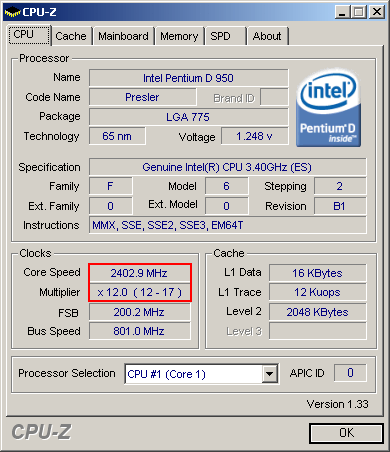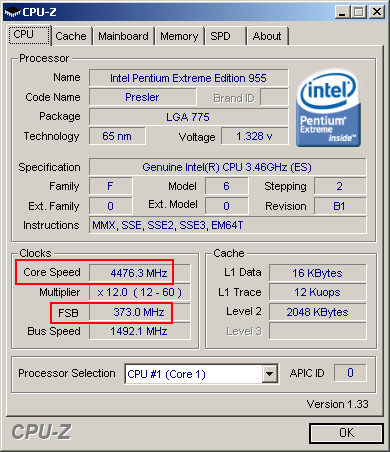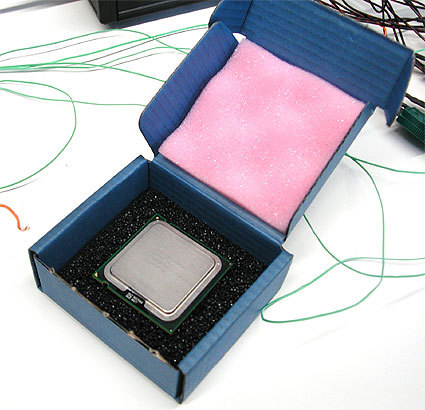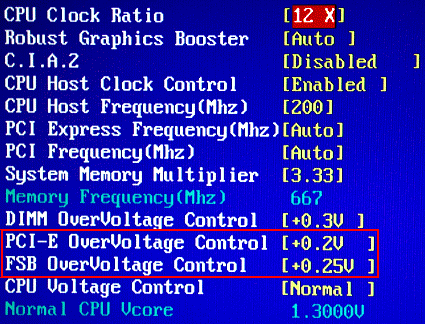Live Memory Test: Overclock 'Em Till They Crash
Get Tom's Hardware's best news and in-depth reviews, straight to your inbox.
You are now subscribed
Your newsletter sign-up was successful
Update 2: Kingston Did Well, GeIL Test Run To Be Repeated
The second test candidate was Kingston's KHX7200D2K2/1G, which is rated at DDR2-900 speed. Both test systems crashed after a couple of hours, but this time were caught off guard.
After we analyzed the Kingston stress test results on Thursday morning we saw that the Kingston memory crashed at the same clock speed as the GeIL memory, which we stressed a day ago: 421 MHz (or DDR2-842). Since the Kingston KHX7200D2K2/1G is rated for DDR2-900, it should have easily withstood that speed. Another component must have caused the crash, and we began looking for the culprit.
It did not take long to isolate the problem: Some readers have been complaining via email and in forum posts about us using different processors for the test systems, a Pentium D 950 and a Pentium Extreme Edition 955. Both are based on the 65 nm Presler double core, but are rated for different clock speeds (FSB800 and 3.4 GHz versus FSB1066 and 3.46 GHz). We had overclocked both processors at low multipliers to check if they were able to provide a sufficient overclocking margin, but the Pentium D 950 did not run reliably during the stress test. At a FSB of 253 MHz (or FSB1012), this processor crashed the system.
This setup worked temporarily, but was not reliable enough to endure the stress test.
After seeing that the Pentium Extreme Edition 955 was good enough to support much higher clock speeds, we asked Intel for an additional Extreme Edition to replace the Pentium D 950. Our night owl readers might have seen the German team doing several overclocking tests with the new Extreme Edition processor. We achieved as high as 373 MHz (or FSB1492), which is certainly good enough to push every memory product to its limits.
We received an additional Pentium Extreme Edition 955, which was able to run stable at FSB1492 (373 MHz base clock) under load over a longer period of time.
We also wanted to make sure that no other component would interfere with our stress testing, which is why we increased the voltages for the Front Side Bus and the PCI Express interface.
Get Tom's Hardware's best news and in-depth reviews, straight to your inbox.
We increased the voltages for FSB und PCIe by a few percent.
After the modifications proved to be stable, we continued to run the Kingston stress test, starting at a memory clock speed of 250 MHz. Since the GeIL memory run was affected by the Pentium D processor, we will repeat that test run during the weekend.
Current page: Update 2: Kingston Did Well, GeIL Test Run To Be Repeated
Prev Page Gigabyte's Memory Voltage Cheat Next Page Kingston Retail Memory Meets the ExpectationsTom's Hardware is the leading destination for hardcore computer enthusiasts. We cover everything from processors to 3D printers, single-board computers, SSDs and high-end gaming rigs, empowering readers to make the most of the tech they love, keep up on the latest developments and buy the right gear. Our staff has more than 100 years of combined experience covering news, solving tech problems and reviewing components and systems.




